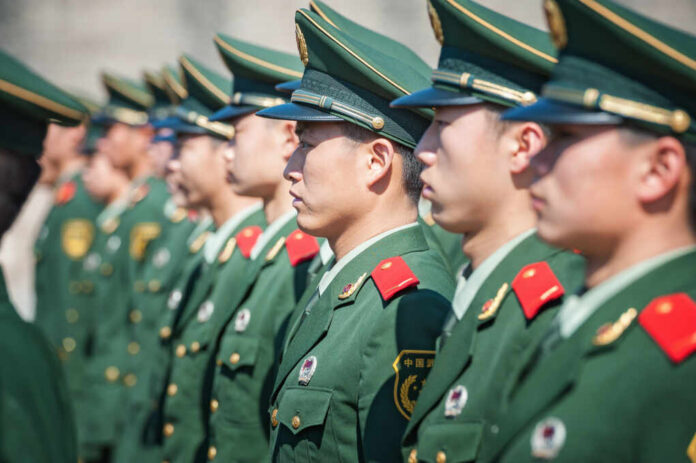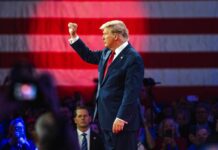
The annual report to Congress on the capabilities of the Chinese military was made public on October 19 and quickly drew criticism. James Fanell, a former high-ranking U.S. Naval officer, and Bradley Thayer, director of China Policy at the Center for Security Policy, claim that the report deliberately waters down the threat and expanding capabilities of the Chinese military.
The authors claim the report is an example of “threat deflation” that allows President Joe Biden and Congress to continue business as usual with the Chinese Communist Party rather than make hard choices about when to draw the line.
Fanell and Thayer criticized the report for underestimating the capabilities of the Chinese forces. In their assessment, the report glosses over the threat posed by new technologies such as hypersonic missiles and an expanding intercontinental ballistics missile program. The authors are also critical of the report’s insistence that China will not possess a “world-class” military until 2049.
Leading conservatives urge members of the House-Senate Conference Committee for the NDAA to address threats by the Chinese Communist Party's US land purchases. @a1policyhttps://t.co/tObIbjuo3H
— Newt Gingrich (@newtgingrich) October 26, 2023
According to Fanell and Thayer, the Chinese military is far more advanced and a much more significant threat to American policies and global peace than the report illuminates. The authors point out that former President Donald Trump has been the only president to stand firm against Chinese military developments.
Trump ordered sanctions against China during his presidency, targeting the military build-up of Communist forces. The current administration has made no such efforts and has shown a willingness to work with China while blindly ignoring the threat that Communism poses to the American way of life.
“Sadly, once again, the Biden administration has missed an opportunity to accurately portray the immediate nature of the PRC’s military power and its aggression against U.S. interests—most importantly to the American people, U.S. global and national security interests, as well as numerous U.S. allies and partners and ultimately to world peace and stability which are in tatters today,” the authors write.
In recent months, China has taken an increasingly hostile stance in its treatment of Taiwan which is independent of the Communist party, but still claimed territory by China. Taiwan has seen an increase in Chinese military aircraft entering its airspace, missile tests that are fired over the small island, and an increase in saber-rattling by China, including a massive buildup of naval power in the South China Sea.
In order to combat China’s expanding military presence in Africa, Asia, and the Middle East, the authors claim the Biden administration would need to make tough decisions on how to move forward. The U.S. government and American consumers rely heavily on low-cost goods made in China and raw materials that are too expensive to mine stateside.

















